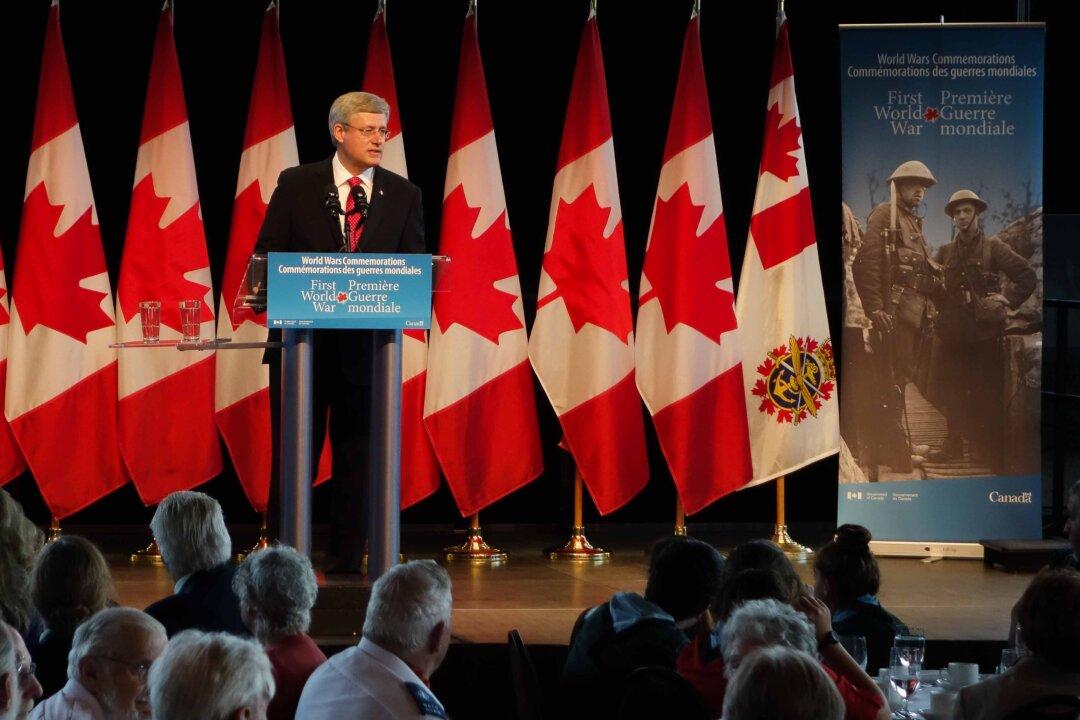OTTAWA, Canada—The First World War destroyed the romance of armed conflict and brought waves of death to Europe that forever changed the nature of battle.
Canada was a young country then. If it were a man, it would be just old enough to have grandkids. It didn’t even have the choice of whether to declare war, as its foreign affairs were still handled by Britain. Canada was at war as soon as the Britain made its own declaration.
But Canada was not indifferent to the fight and men and women volunteered in droves. Over 400,000 went overseas. 60,000 lost their lives.
It was Canada’s coming of age, and by the end of the war, the young country would have one of the world’s largest navies and be among the greatest armaments producers in the world.
On Monday, Canada marked 100 years since the beginning of that awful conflict. Prime Minister Stephen Harper laid a wreath at the Tomb of the Unknown Soldier at the National War Memorial before making a speech at the Canadian War Museum.
He noted the terrible cost Canada suffered in that conflict, as well as the new stature that came afterwards.
“Canada, as a truly independent country, was forged in the fires of the Western Front.
“That is to say that when the great nations of the world gathered, we must never forget that our place at the table was not given to us.
“It was bought and paid for on the gas-choked battlefield at Ypres… at Vimy Ridge, where Canadian men united under Canadian leaders, achieved a victory that had eluded so many others; in the drenched and cratered wasteland of Passchendaele,.. in the sombre and blood-soaked field hospitals…”
It’s a story Canadian’s know well. How the young country enthusiastically rushed to help its allies, and learned the grim realities of war. Stories like Vimy Ridge are legendary. A German stronghold that Canadians captured, all four divisions of the Canadian Corps fighting together for the first time under Canadian commanders. They battled over an open graveyard, where 100,000 French soldiers died in a previous attempt.
France later ceded that territory to Canada. On those grounds a massive memorial stands.
It was to be the war to end all wars. But it did not. The National War Memorial the Prime Minister visited has the dates of 1914-1918 etched in its granite, but has been amended with a bronze plaque to include the dates of the Second World War as well. The unknown soldier who lays buried there a symbol of lost lives left forever on the battlefield.





